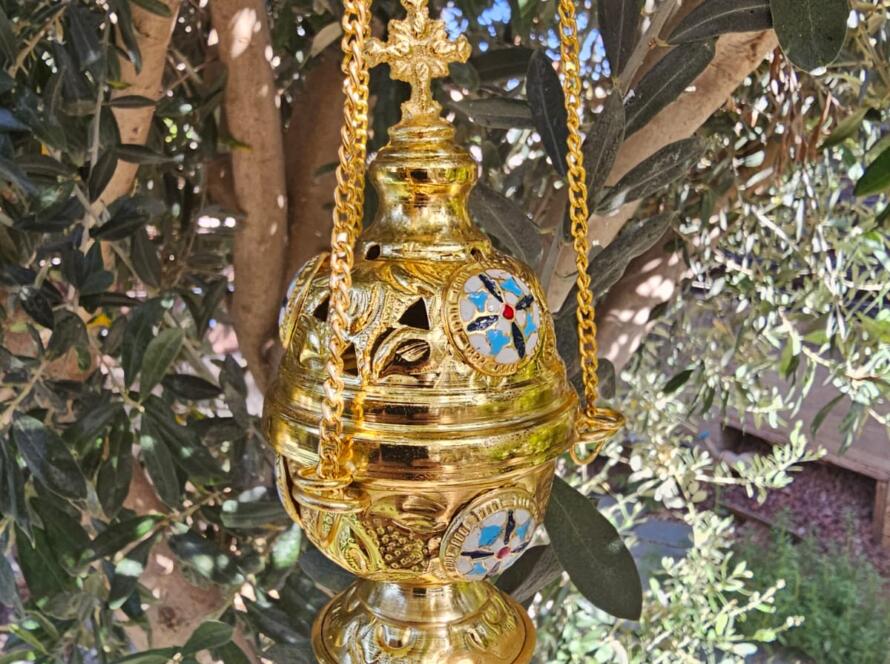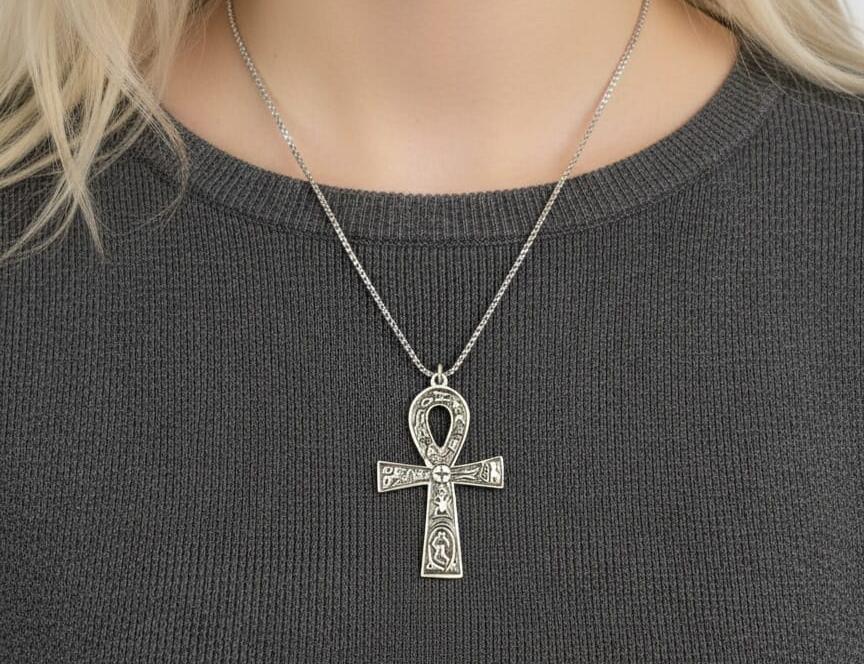Summary
Christianity for Modern Pagans
A long-form exploration for seekers, spiritual wanderers, and modern pagans drawn to the message of Jesus.
Christianity for Modern Pagans
A long-form exploration for seekers, spiritual wanderers, and modern pagans drawn to the message of Jesus.
Introduction — The New Paganism and the Old Longing
Across the Western world, a quiet spiritual revolution is unfolding.
Millions today identify as “spiritual but not religious,” neo-pagan, Wiccan, Earth-centered, or simply open to the unknown.
This modern paganism is not a revival of ancient Roman or Norse religion, but rather a new form of spiritual searching—a desire for wonder, freedom, nature, mystery, and meaning beyond rigid structures.
Ironically, many modern pagans who explore everything from tarot to runes to energy work eventually find themselves drawn toward an unexpected figure:
Jesus of Nazareth.
Not the cultural Jesus of institutions or politics,
but the real Jesus:
-
the teacher who spoke with the authority of the divine,
-
the healer who reversed the brokenness of the world,
-
the mystic who walked on water,
-
the prophet who confronted corrupt power,
-
the Lamb who gave Himself,
-
the risen Lord who transformed history.
This article explores why Christianity appeals so deeply to modern pagans — and how the ancient Christian faith actually fulfills many of the deepest longings of the modern spiritual seeker.
1. The Rise of Modern Paganism — What Are People Really Searching For?
Modern paganism is diverse, but most seekers share several longings:
1. A spirituality rooted in creation
Many feel closest to the sacred in forests, oceans, night skies, and mountains.
2. A sense of enchantment
A world where mystery is real and the invisible matters.
3. Personal empowerment
Not a passive faith, but one where individuals participate actively in spiritual life.
4. Connection to ancient wisdom
A desire for rituals, symbols, myths, and traditions older than modern culture.
5. The feminine divine
A space where the feminine is honored, not suppressed.
6. Freedom from rigid dogma
Spirituality as discovery, not coercion.
7. Healing from religious trauma
Many modern pagans are ex-Christians who encountered judgment, not love.
These longings are real.
They matter.
And Christianity — in its original, uncorrupted form — speaks to each one profoundly.
2. Christianity and the Pagan Heart — Why Jesus Still Attracts Seekers
Many modern pagans reject the institution of Christianity,
not Jesus Himself.
Jesus is:
-
gentle with the wounded,
-
fierce with the oppressive,
-
endlessly forgiving,
-
deeply mystical,
-
radically loving.
He refuses to shame the sinner,
but exposes the hypocrite.
He blesses nature,
celebrates beauty,
welcomes outsiders,
and speaks in mythic parables.
Even pagans who reject church dogma often say:
“I love Jesus — I just don’t know where I fit.”
Christianity, when stripped of cultural baggage, offers five things modern pagans deeply desire.
3. Creation as Sacred — Christianity’s Forgotten Earth Spirituality
Many modern pagans begin their journey in the woods, not in a church.
Yet Christianity actually affirms a very pagan-sounding truth:
Creation is sacred because it comes from the mind of God.
In Genesis:
-
God calls the world “good” again and again.
-
God breathes life into humanity.
-
God walks in the garden with Adam and Eve.
The Bible is filled with Earth imagery:
-
Mountains tremble before God
-
Trees clap their hands
-
Stars sing
-
Rivers rejoice
-
Creation groans for redemption
Christianity is not anti-nature.
It is profoundly pro-creation.
Modern pagan reverence for the Earth is a natural impulse Christianity not only allows, but deepens:
You love the Earth because you were created to love the One who made it.
4. Mystery, Ritual, and Wonder — Christianity Is More Mystical Than People Realize
Many pagans embrace:
-
ritual,
-
symbolism,
-
sacred objects,
-
incense,
-
candles,
-
water,
-
fire,
-
cycles,
-
the unseen world.
Christianity is full of these elements:
-
Baptismal water
-
Eucharistic bread and wine
-
Anointing oils
-
Lit candles
-
Sacred chants
-
Holy spaces
-
Seasons and cycles (Advent, Lent, Easter, Pentecost)
-
Angels, visions, prophetic dreams
-
Miracles
-
Demons confronted and defeated
-
Sacrifice
-
Resurrection
Christianity is not a dry religion of rules.
It is a deeply sacramental, symbolic, embodied, mystical faith.
5. “A God Who Knows My Name” — The Personal Divine Modern Pagans Seek
Many modern pagans believe in:
-
energy,
-
archetypes,
-
universal consciousness,
-
the divine feminine,
-
or a higher vague force.
But Christianity offers something radically different:
A personal God who speaks, listens, loves, and enters into relationship.
Not an impersonal universe,
but a God with a heart.
Not energy,
but intimacy.
Not archetype,
but incarnation.
Jesus does not simply teach about God —
He embodies God.
He reveals a divine presence that is tender, intimate, and relational:
-
“I call you friends.”
-
“I will never leave you.”
-
“I have called you by name.”
Modern pagans crave connection.
Christianity offers the deepest connection possible:
union with the living God.
6. The Feminine in Christianity — More Present Than Many Realize
Many pagans feel Christianity suppresses the feminine.
But historically and theologically, the feminine runs deep in the Christian story:
-
God describes Himself with maternal imagery
-
Wisdom (Sophia) is portrayed femininely
-
The Holy Spirit is depicted in early Christian writings with feminine language
-
Mary (the Theotokos) is the most celebrated woman in religious history
-
Women were the first witnesses to the resurrection
-
Early Christianity elevated women compared to surrounding cultures
-
Female saints, mystics, and martyrs shaped the Church
Christianity is not anti-feminine.
Its roots affirm the dignity, mystery, and spiritual authority of women.
7. Jesus and the Pagan Soul — Why He Resonates with Seekers
Pagans are often mystics by nature.
They value inner truth, authenticity, and the search for meaning.
When they finally meet Jesus directly — not through institutions — they find:
1. A revolutionary teacher
Challenging power structures and hypocrisy.
2. A mystical healer
Restoring the broken with compassion.
3. A prophet of love
Who insists mercy triumphs over judgment.
4. A divine seeker of the lost
Finding value in the wounded, outcast, and spiritually hungry.
5. A God who dies for His enemies
Love pushed to its most radical extreme.
Jesus is someone no pagan can easily ignore.
8. Christianity and Magic — The Deeper Power Behind the Universe
Many modern pagans believe in forces such as:
-
energy
-
manifestation
-
divination
-
healing rituals
-
protective charms
-
spirit guides
Christianity does not downplay the existence of spiritual power.
In fact, it intensifies it:
-
Jesus commands storms
-
Casts out demons
-
Heals disease with touch
-
Multiples bread and fish
-
Raises the dead
-
Appears in glory
-
Defeats spiritual darkness
Christianity acknowledges:
There is real power in the universe — and it flows from the Creator, not creation.
Paganism senses the energies.
Christianity reveals the Source.
9. The Limits of Modern Paganism — Beautiful but Incomplete
Modern paganism offers:
-
beauty
-
connection
-
ritual
-
intuition
-
freedom
But it struggles to answer certain deep questions:
1. What is the nature of good and evil?
Paganism often denies moral absolutes.
2. What happens after death?
Answers are vague, symbolic, or inconsistent.
3. How is forgiveness possible?
Paganism teaches self-healing but not atonement.
4. If the universe is divine, why is it broken?
Christianity offers a coherent explanation: sin.
5. Who heals the human heart?
Christianity offers a Savior, not just teachings.
6. What is the purpose of existence?
Christianity gives a grand narrative: creation → fall → redemption → restoration.
Paganism awakens the spiritual hunger.
Christianity satisfies it.
10. For Modern Pagans Who Feel Drawn to Christianity — A Gentle Path Forward
If you have pagan roots but feel drawn toward Jesus, you are not betraying your spiritual journey.
You are fulfilling it.
Here is a gentle, non-threatening approach:
1. Start with Jesus, not religion.
Read the Gospels.
Let Him speak for Himself.
2. Keep your sense of wonder.
Christianity does not ask you to abandon mystery.
3. Bring your questions.
Doubt is not a sin.
Curiosity leads to truth.
4. Understand that Christianity is not “anti-nature.”
It celebrates creation.
5. Recognize that Christ completes your spirituality.
He does not erase it — He deepens it.
Christianity for modern pagans is not a rejection of your past;
it is a homecoming.
11. Christianity and the Pagan Past — A Historical Perspective
Many early Christians were pagans:
-
Greeks
-
Romans
-
Celts
-
Egyptians
-
Syrians
-
Persians
Christianity did not crush their identity.
It fulfilled their quest.
Many ancient pagan ideas found deeper truth in Christianity:
-
Logos (divine reason)
-
Sophia (wisdom)
-
Sacrifice
-
Ritual purity
-
Sacred space
-
Cosmic order
-
Life after death
-
Hope in divine union
Christianity absorbed the beauty of pagan symbolism and stripped away the confusion.
That process continues today.
12. Why Christianity Is Good News for Modern Pagans
Because Christianity offers what they long for but cannot find elsewhere:
1. A personal God who loves fiercely.
Not an idea — a Person.
2. A path that transforms, not just inspires.
3. Forgiveness that heals shame.
4. A cosmic story worth living for.
5. A Savior who defeats evil — not just explains it.
6. A resurrection hope that conquers death.
7. A faith that celebrates creation while pointing beyond it.
Christianity does not kill the pagan soul.
It resurrects it.
Conclusion — Christianity Is the Destination of the Pagan Heart
Modern paganism is not rebellion.
It is spiritual yearning.
A yearning for:
-
enchantment
-
meaning
-
nature
-
beauty
-
connection
-
mystery
-
transcendence
Christianity does not silence those yearnings —
it transforms them, fulfills them, and brings them home.
Because the heart of the Christian message is this:
The God you seek is seeking you.
He has always sought you —
in forests, in moonlight, in questions, in hunger, in longing.
And He reveals Himself finally, fully, and beautifully in Jesus.
Christianity for modern pagans is not a compromise.
It is an invitation to discover that the spiritual hunger you’ve always felt
was placed there by the God who loves you
and calls you by name.





